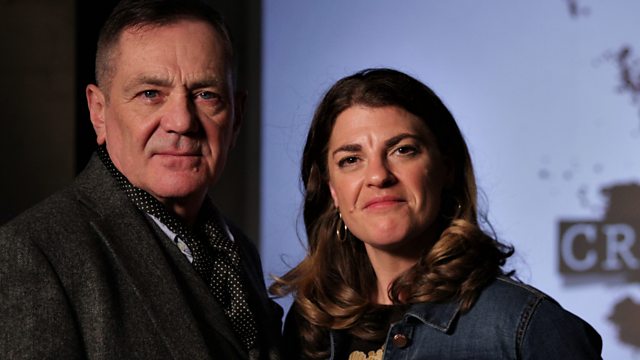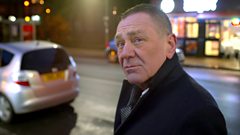
Crime and Poverty
Criminologist David Wilson discusses and offers compelling arguments for the links between systemic poverty and extreme anti-social behaviour.
Criminologist Professor David Wilson discusses the government’s findings that it is difficult to prove a link between austerity-era poverty and the rise in anti-social behaviour.
Investigative journalist Fiona Walker presents a short film about the infamous triple murder carried out by Charles Boyle Jr in 1920s Glasgow. Boyle grew up in crushing poverty and suffered from polio. On the same day he’d had his foot amputated - and after getting blind drunk when released from hospital - he arrived home to the single room he lived in with his family and murdered his mother and two neighbourhood children.
Fiona joins David in the studio, revealing that Boyle confessed to the murders, claiming he wanted someone to ‘give him the rope’ but ended up getting 15 years in prison instead. She presents information about Boyle that suggests he may have suffered from a mental illness. David surmises this may have been caused by a brain injury. He had tried to commit suicide on several previous occasions, but this alone does not demonstrate a link between poverty and crime and the vast majority living in similar circumstances never went on to kill.
David’s next guest is hip-hop artist and author Darren McGarvey, whose book Poverty Safari is a personal study in the anger of Britain’s underclass. David speaks with Darren about his own upbringing and how poverty - and especially the alcohol abuse it can engender - can shape an individual through childhood, causing them to become anti-social in later life. Darren talks about the problem that politicians have acknowledging the links between poverty and crime and the reasons not to simply create an excuse for abusive individuals to claim their behaviour is due to the upbringing.
In a short film, David investigates what became known as the House of Blood Murders which took place in 2004, a disturbing triple murder event which David argues had its root causes in childhood neglect, the normalisation of violence and long-term alcohol abuse. Edith McAlinden stabbed her partner during a drinking session, causing him to bleed to death. In a brutal attempt to avoid facing the consequences, she, her teenage son and his friend murdered the eyewitnesses - her partner's two flatmates.
Back in the studio, David speaks with retired detective and the senior investigating officer of the House of Blood Murders, William Johnston, who describes the horrific scene that he and fellow officers were confronted with. He reveals that McAlinden was actually cradling the body of her boyfriend and crying for him to wake up in an attempt maintain a ruse that she had stumbled on the scene and additionally explain why she had his blood on her clothing. However, forensics told a different story and William explains how McAlinden was well-known to police and how the circumstances of her upbringing may well have contributed to her upbringing, but that ultimately in his opinion McAlinden was ‘evil’.
David’s final guest is forensic psychologist Karyn McCluskey. Co-founder of the hugely innovative and successful Violence Reduction Unit in Scotland, she reveals how they sought to tackle the shocking statistic of knife crime and domestic abuse in Scotland by attempting a paradigm shift and seeing violent crime as a disease. They operated at the fringes of policing and engaged professionals across the spectrum - from vets to dentists - to look out for signs of domestic violence and intervene. Karyn also discusses how poverty can be a cause of violent crime but argues that a lack good male role models is also a contributing factor.
Last on
More episodes
Previous
Next
Clip
-
![]()
‘They had encountered true evil’
Duration: 01:04
Broadcasts
- Sun 4 Aug 2019 21:00
- Sun 16 Aug 2020 21:00
- Sun 30 May 2021 21:00
- Sun 3 Jul 2022 21:00
- Tue 5 Jul 2022 23:00
- Tue 22 Aug 2023 23:00

